Ian goes to college part 3 – Drama Class Results
Sara Gardner | February 6, 2015
As he begins his second semester of community college, I want to catch everyone up on Ian’s college career to date. Last semester, Ian and I attended College of Marin’s beginning acting class. While we originally discussed transitioning towards independence last semester, we never made the jump. Drama 130 was a great class and a hard class. Ian wanted to give up at times, but he was willing to push through and rise to the challenges. Many times he told me: “This is too hard!” I would respond by telling him, “It’s really hard, but not too hard.” ‘Too hard’ means that you can’t do it, and Ian was doing it.
 There were parts of Ian’s drama class that he navigated with ease. He was an ace at the warm up exercises and improvisation games. He attended to these tasks with his full focus and with little to no support from me. These tasks demanded attention to multiple variables, observation of social cues, creative thinking, and coordination of movement and vocalization. Each of these elements represents an area of challenge for individuals on the autism spectrum.
There were parts of Ian’s drama class that he navigated with ease. He was an ace at the warm up exercises and improvisation games. He attended to these tasks with his full focus and with little to no support from me. These tasks demanded attention to multiple variables, observation of social cues, creative thinking, and coordination of movement and vocalization. Each of these elements represents an area of challenge for individuals on the autism spectrum.
Many of the classroom exercises required a combination of these skills, multiplying the difficulty. As an example, the exercise “Red Ball/Blue Ball,” entails the class standing in a circle and passing an imaginary ball. First, the students are asked to visualize a large red beach ball. Students “pass” the imaginary ball by making eye contact with someone in the circle, saying the words “red ball” and miming the throw. The recipient “catches” the ball in accordance with its size and weight and then passes it on to someone else. The group works up to passing four different “balls” of different weight, size and shape. The attention and communication required for this game is incredibly challenging and Ian’s ability to master this activity blew me away. Ian also exhibited a high level of independence when the class was split into pairs to work on exercises and scenes. At first, I stayed near during these exercises, but by the end of the semester, I usually sat in the classroom as he and a classmate walked out into the halls to find a place to work.
On to the areas where Ian needed continued support: By far the hardest part of the class for Ian to independently benefit from was lecture. It is my belief that Ian fell into a pattern of behaving, but not paying attention in high school and possibly before then. It is a pattern of behavior that has been highly functional for him. He understands the expectations of him to remain seated and quiet while the teacher is speaking, but the volume of verbal information, especially when it ranges out of his interest and/or comprehension, does not hold his attention.
 From his facial expressions and gaze, I imagine him to be running a series of visual movie-like memories from his past, some funny and some distressing. I imagine the teacher’s voice turning into the trombone “wah wah” from the Peanuts. Sometimes a random word or phrase such as “ninja” or “Robin Williams” would catch his attention and he would raise his hand and ask a non-sequitur question. While Ian thrived when paired with a peer, he experienced similar attention difficulties when doing small group work. As with the teacher, his peers’ voices seemed to fade into the background as he entered his private world.
From his facial expressions and gaze, I imagine him to be running a series of visual movie-like memories from his past, some funny and some distressing. I imagine the teacher’s voice turning into the trombone “wah wah” from the Peanuts. Sometimes a random word or phrase such as “ninja” or “Robin Williams” would catch his attention and he would raise his hand and ask a non-sequitur question. While Ian thrived when paired with a peer, he experienced similar attention difficulties when doing small group work. As with the teacher, his peers’ voices seemed to fade into the background as he entered his private world.
To address these issues, Ian and I created a 5-point scale. Ian found my Incredible 5-point Scale workbook a few months earlier. He was fascinated by it and felt sure that it would be helpful to him. At the time, we used it to make a scale to help him with appropriate greetings. Ian was very actively engaged with creating a scale for classroom engagement/attention levels.
Here’s what we came up with:
Using this scale, and pointing to the person Ian should be paying attention to, helped him to increase his level of engagement and attention when and where appropriate. We also created a system for Ian to ask for breaks to walk in the hallway and enter his private world. My main goal with this intervention was to increase Ian’s awareness of when he was paying attention and when he was “zoning out”, so that he was in control of the shift instead of passively drifting into the world of his imagination. We also created an excitement scale to remind Ian to use his techniques, such as deep breaths when he was becoming over-stimulated. With the excitement scale, I could make eye contact from across the room and hold up 4 fingers; Ian would then close his eyes, take a deep breath, and ground himself. Doing this minimized the need to walk across the room to him during activities and gave him more responsibility for self-regulation.
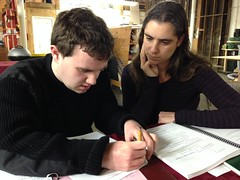 Another area in which Ian made excellent progress with support was with the written requirements for the class. The students were asked to write two performance critiques of actors from College of Marin’s plays, and two character analysis papers for the monologues they performed as midterm and final exams. The first part of supporting these assignments was helping to focus Ian’s attention. For both plays, Ian’s teacher helped me chose a character for Ian to pay special attention to. We chose characters with dramatic shifts and personalities. I attended the first play with Ian and Janet attended the second. We drew his attention to the actor he would be writing about as we were watching the play and discussed them immediately following the play. For the character analysis, I focused Ian’s attention by having him highlight dialogue. Together, we created an outline for the papers with prompt sentences. I would then leave Ian to work independently and then circle back in to help. It was a lot of work and a big challenge for Ian, but he stretched to meet the challenge. He showed remarkable diligence and determination and, with support, produced college level writing.
Another area in which Ian made excellent progress with support was with the written requirements for the class. The students were asked to write two performance critiques of actors from College of Marin’s plays, and two character analysis papers for the monologues they performed as midterm and final exams. The first part of supporting these assignments was helping to focus Ian’s attention. For both plays, Ian’s teacher helped me chose a character for Ian to pay special attention to. We chose characters with dramatic shifts and personalities. I attended the first play with Ian and Janet attended the second. We drew his attention to the actor he would be writing about as we were watching the play and discussed them immediately following the play. For the character analysis, I focused Ian’s attention by having him highlight dialogue. Together, we created an outline for the papers with prompt sentences. I would then leave Ian to work independently and then circle back in to help. It was a lot of work and a big challenge for Ian, but he stretched to meet the challenge. He showed remarkable diligence and determination and, with support, produced college level writing.
In the end, Ian’s first go at a college class was a success. He needed some support throughout the class, but he also demonstrated the ability to independently tackle some college-level work. He came out of the class with an A and, perhaps more importantly, his monologue performance (the class final) received roaring applause from his classmates, whom he had inevitably charmed and connected with over the course of the semester.
Addendum:
For Ian’s final monologue, he chose a piece from Hunting and Gathering: a comedy about finding your place, by Brooke Berman. In the monologue Ian performed, Astor, (a man in his 20’s), complains in colorful language about the difficulties of finding housing in New York, and about how mothers worry because it is their biologically determined function. (A bit of foreshadowing here…) I will write again soon about Ian’s amazing (and surprising) launch into the spring semester.




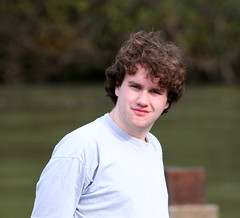 Ian is bravely trying out a college class at College of Marin. While it is not a community college in San Francisco complete with dorms, (one of Ian’s current dreams), it is a huge step towards the independent adult life that he is trying to build for himself and that his parents are working to support with all of their hearts. In true Dan and Janet fashion, when they looked at the current programs to support students with disabilities at the local community college and found them lacking, they set out to build something better.
Ian is bravely trying out a college class at College of Marin. While it is not a community college in San Francisco complete with dorms, (one of Ian’s current dreams), it is a huge step towards the independent adult life that he is trying to build for himself and that his parents are working to support with all of their hearts. In true Dan and Janet fashion, when they looked at the current programs to support students with disabilities at the local community college and found them lacking, they set out to build something better.  Thus I am attending the class with Ian, not only to support him as a student, but to investigate the nature of supporting ASD (Autism Spectrum Disorder) individuals at the college level. In addition to thinking about balancing Ian’s needs with those of his teacher and classmates, I am going to be doing my best to think about how this support could be scaled up to meet the needs of other ASD students.
Thus I am attending the class with Ian, not only to support him as a student, but to investigate the nature of supporting ASD (Autism Spectrum Disorder) individuals at the college level. In addition to thinking about balancing Ian’s needs with those of his teacher and classmates, I am going to be doing my best to think about how this support could be scaled up to meet the needs of other ASD students.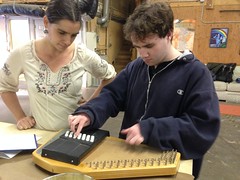 One of the joys and challenges of working with ASD individuals is the incredible diversity of their skills, talents and needs. During our first day of class, I noticed that Ian’s tendency is to tune out the intense verbal language of the lecture component of the class. While doing this, he is still working hard to stay regulated and to present an outward impression of paying attention. He is quiet and still at his desk and looks toward the teacher as she talks. Asking him questions, prompting him to write down essential concepts and reminding him to pay attention were strategies I tried to increase his level of attendance to the material being presented. I am helped in these efforts by the nature of the class, a drama class which teaches fundamental acting skills. As such, the class is taught by a woman who has a background in acting and who conducts her class in an engaging manor. High levels of affect naturally interest Ian, and prompt him to attend to the material. Another helpful element of the class is that the students tend to only spend small chunks of time on lecture material before being called to their feet and asked to put principles into active practice.
One of the joys and challenges of working with ASD individuals is the incredible diversity of their skills, talents and needs. During our first day of class, I noticed that Ian’s tendency is to tune out the intense verbal language of the lecture component of the class. While doing this, he is still working hard to stay regulated and to present an outward impression of paying attention. He is quiet and still at his desk and looks toward the teacher as she talks. Asking him questions, prompting him to write down essential concepts and reminding him to pay attention were strategies I tried to increase his level of attendance to the material being presented. I am helped in these efforts by the nature of the class, a drama class which teaches fundamental acting skills. As such, the class is taught by a woman who has a background in acting and who conducts her class in an engaging manor. High levels of affect naturally interest Ian, and prompt him to attend to the material. Another helpful element of the class is that the students tend to only spend small chunks of time on lecture material before being called to their feet and asked to put principles into active practice.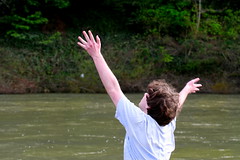 During the circle exercises of the first day, passing names and gestures around a circle, first methodically and then in a random pattern, Ian displayed a very high level of engagement. He not only “got” the games, he was good at them. Over the course of these exercises, I saw the students’ perception of Ian change. Their attitude shifted from one of curiosity to one of interest, and he was chosen often by his peers to participate. He was good at remembering the names of his peers and who had or had not been already chosen. It was gratifying to see Ian engaging and succeeding. Our only interaction during this period was when he would catch my eye from across the room and I would give him a smile or thumbs-up. This first day showed me three different levels of engagement and motivation that Ian currently possesses. There was a language-based lecture that he needed a high level of support to gain benefit from, a short film sequence and some short monologue performances that Ian watched intently and was able to comment on with very little scaffolding/prompting, and there were the active exercises, which he was able to attend to and participate in without support.
During the circle exercises of the first day, passing names and gestures around a circle, first methodically and then in a random pattern, Ian displayed a very high level of engagement. He not only “got” the games, he was good at them. Over the course of these exercises, I saw the students’ perception of Ian change. Their attitude shifted from one of curiosity to one of interest, and he was chosen often by his peers to participate. He was good at remembering the names of his peers and who had or had not been already chosen. It was gratifying to see Ian engaging and succeeding. Our only interaction during this period was when he would catch my eye from across the room and I would give him a smile or thumbs-up. This first day showed me three different levels of engagement and motivation that Ian currently possesses. There was a language-based lecture that he needed a high level of support to gain benefit from, a short film sequence and some short monologue performances that Ian watched intently and was able to comment on with very little scaffolding/prompting, and there were the active exercises, which he was able to attend to and participate in without support.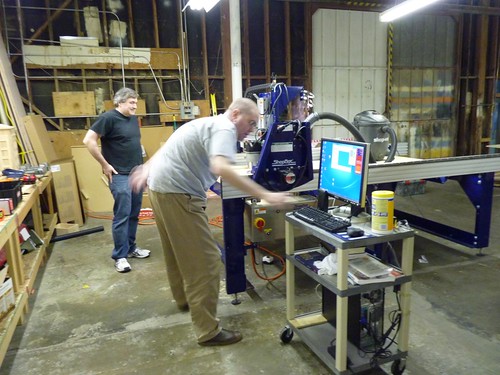

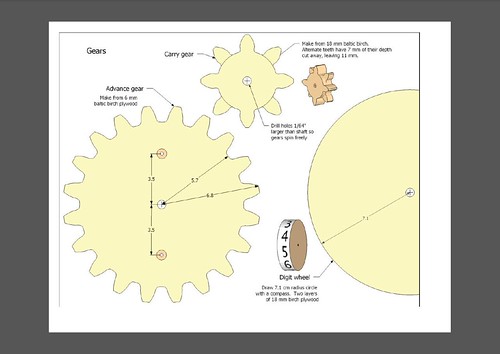




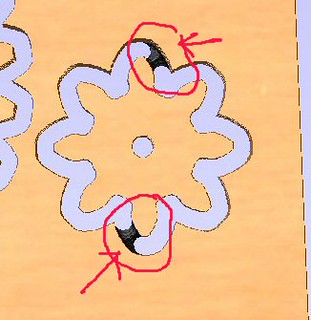
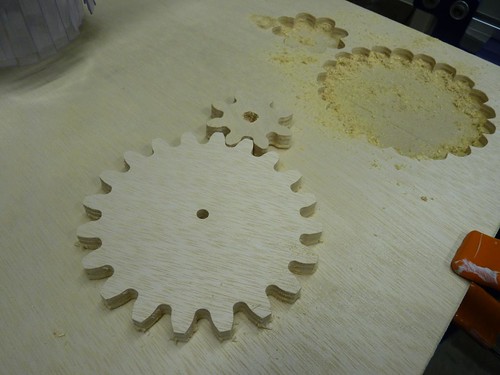

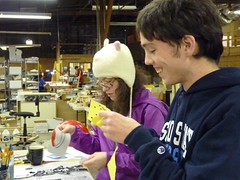
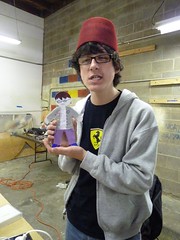

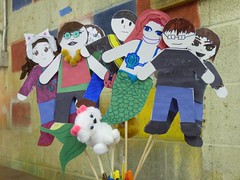

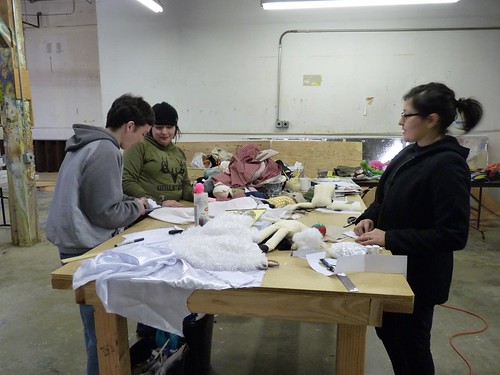
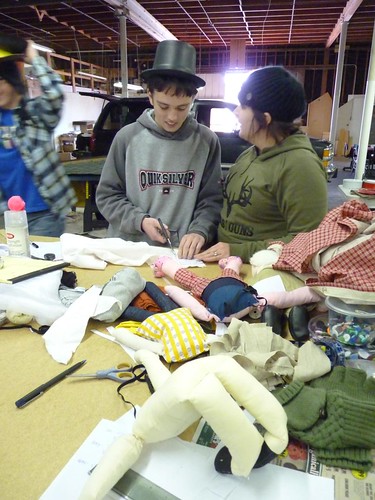
 My career in software was a profitable side-effect. In school I was interested in everything and focusing on one thing to get a degree was a challenge. Science seemed to be a recurring interest and my employer at the time (Hewlett-Packard) would pay tuition in that area so I chose to major in physics. After my BS I changed schools to work on a Masters. I was at Cal. State Northridge and they had a world class solar observatory and the astronomers were nice to work with so my M.S. in Physics was based on research into the solar magnetic field structure’s relationship with gas brightness and velocity. For my Ph.D. I wanted to work on something other than solar astronomy so amongst the multitude of choices I had (I think it was two) I joined the astronomy department at Indiana University, Bloomington. I was there five and a half years and finished my coursework, my Physics and Astronomy Ph.D. qualifying exams, and made good progress on my dissertation research. However, family and financial pressures precluded my staying the extra one or two years it would have taken to complete my Ph.D so I left IU with a “thank you for playing” Masters in Astronomy. In the mean time I had picked up good programming skills that people were very interested in paying me for.
My career in software was a profitable side-effect. In school I was interested in everything and focusing on one thing to get a degree was a challenge. Science seemed to be a recurring interest and my employer at the time (Hewlett-Packard) would pay tuition in that area so I chose to major in physics. After my BS I changed schools to work on a Masters. I was at Cal. State Northridge and they had a world class solar observatory and the astronomers were nice to work with so my M.S. in Physics was based on research into the solar magnetic field structure’s relationship with gas brightness and velocity. For my Ph.D. I wanted to work on something other than solar astronomy so amongst the multitude of choices I had (I think it was two) I joined the astronomy department at Indiana University, Bloomington. I was there five and a half years and finished my coursework, my Physics and Astronomy Ph.D. qualifying exams, and made good progress on my dissertation research. However, family and financial pressures precluded my staying the extra one or two years it would have taken to complete my Ph.D so I left IU with a “thank you for playing” Masters in Astronomy. In the mean time I had picked up good programming skills that people were very interested in paying me for. I’m a former United States Marine. That probably should make six things you didn’t know about me. I put it here in the Asperger’s portion because many of my most effective coping mechanisms were learned during training in the Corps and I’ll always be grateful for that. I also learned how to get shoes REALLY shiny.
I’m a former United States Marine. That probably should make six things you didn’t know about me. I put it here in the Asperger’s portion because many of my most effective coping mechanisms were learned during training in the Corps and I’ll always be grateful for that. I also learned how to get shoes REALLY shiny.